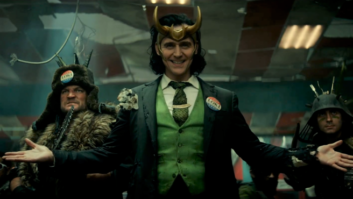Over the centuries human beings have always loved to laugh. We can imagine jokes being shared by our cave dwelling ancestors about the two woolly mammoths. Today comedy is shared with vast audience by world-famous arena-filling comedians. Comedy is part of human culture.
There seems to be more comedy than ever. There are local comedy clubs, the Edinburgh Fringe, YouTube, comedy series and Hollywood movies – however you like your comedy served up, there is probably a source catering to your taste.
However, despite the many options, there are still some key challenges in the industry. Firstly, it’s a challenge for all but the very top tier of acts to make a living. It’s great that someone like Bo Burnham can go from YouTube recordings to sell-out shows, but giving comedy away for free online isn’t sustainable for most comics.
Take the Edinburgh Fringe. Comics usually have to pay for their own travel, accommodation and venue hire which leaves them out of pocket. Other art forms, such as music, theatre, dance, literature and visual arts can look to receive funding from the Arts Council, yet comedy isn’t eligible to apply.
Also, comedy has always lingered slightly in music’s shadow in terms of new media – lagging behind embracing digital platforms and instead courting the favour of terrestrial broadcasters with limited opportunities and the (now seriously dwindling in number) DVD deal.
So, where does the future of comedy lie? Will there be a dearth of diversity as only the ‘panel-show’-worthy survive? Or will breakthrough comedians catering to a wider range of tastes find their audience with the launch of new online comedy platforms?
Appealing to new audiences
Firstly, we predict that niche online streaming services, such as NextUp Comedy, will draw in new audiences who wouldn’t previously have considered themselves ‘comedy fans’. The online space doesn’t have the same barriers to entry as traditional comedy clubs which have had a reputation as stomping grounds for groups of ‘lads’ and stag dos.
Watching comedy online is more flexible. You can do it in your own time, wearing just your PJs (if that’s your thing). Also you can risk taking a punt on someone new without the embarrassment of walking out if you don’t like it. You might just discover a new favourite who you’re desperate to see in person. As a result the ability to stream comedy will bring bigger and more wide ranging audiences into live comedy venues.
New ways of monetising
Online video also provides greater longevity of individual shows for comedians. Imagine writing a full hour of carefully crafted material only to have it disappear after a month in Edinburgh. With much easier access to great camera equipment, when their shows are captured and preserved, new comedians will have a better chance of building an audience of fans, creating a new revenue stream, and developing a long-term comedy career.
A greater range of comedy
With greater career chances for new comedians will come a broader range of comedy. There is no one carefully curating what you watch online – the internet caters to all tastes. Giving airtime to a new ‘out there’ comedian in a club can be a risky move, and this caution has also been playing out on TV, where jokes that are considered potentially offensive or borderline are being edited out.
Legendary comic George Carlin once said “’I think it’s the duty of the comedian to find out where the line is drawn and cross it deliberately.” A lot of people yearn for comedy that pushes boundaries. We see it time and time again, with comedians like Bill Hicks and Frankie Boyle; pushing the boundaries of what is acceptable helps people laugh at the harsh realities of life.
By establishing online comedy as a major platform, viewers will have a choice over what comedy they watch and comedians can be their true, unedited selves. Hopefully, this will contribute to a new golden age of comedy, where creativity and diversity are highly-valued.
Integrating technology into performance
Technology will help comedians spread their material further, but it could also change the very nature of their acts. Using props, sound and lighting, comedians already transport viewers into different worlds, whether it’s a childhood flashback or a surreal post-apocalyptic sketch. With VR, AI and Augmented Reality becoming cheaper and more accessible, I can see comedians using them to transport their audiences even further into their weirdly wonderful comedic minds.
In summary, I am optimistic that comedians will use technology to engage their audience even more, mix things up a little, find new fans, and continue to serve an important role in society. We don’t need to worry – given the way things have been going recently, comedians are being fed wonderful material to build on. We can look forward to enjoying their new sets.







